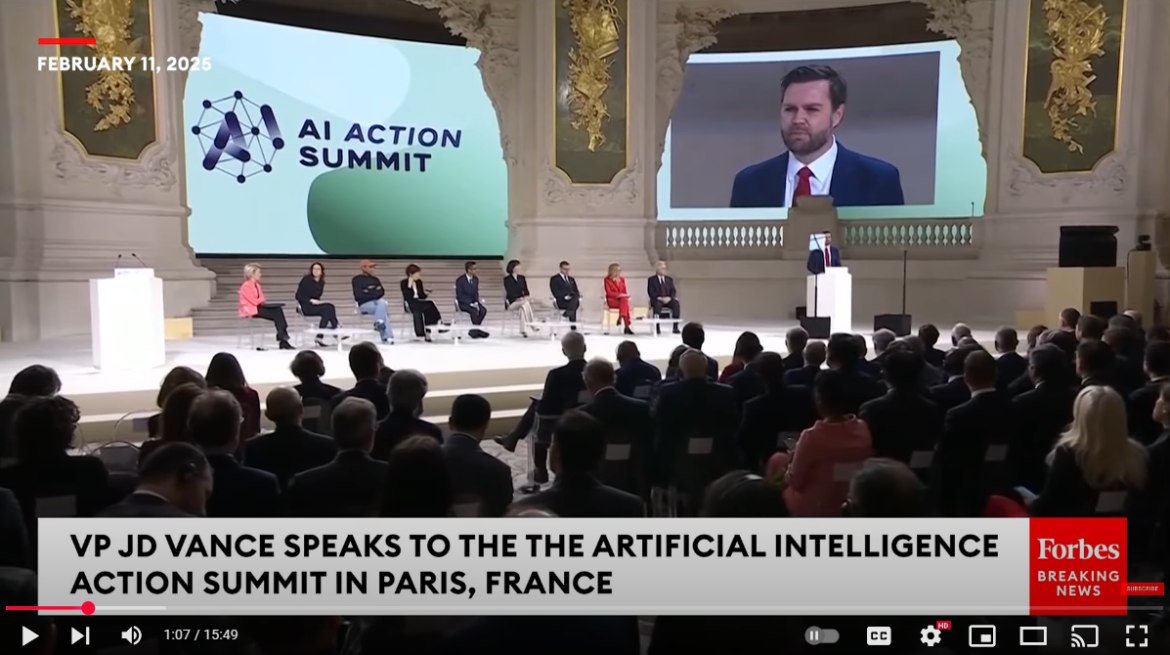In his inaugural international address as Vice President, JD Vance cautions European leaders against imposing stringent regulations on artificial intelligence (AI), asserting that such measures could stifle innovation and hinder economic growth. Speaking at the Artificial Intelligence Action Summit in Paris, Vance emphasizes the transformative potential of AI, likening it to a new industrial revolution, and warns that excessive regulation may “kill a transformative industry just as it’s taking off.”
Vance’s remarks highlight a growing divergence between the United States and Europe regarding AI governance. While the European Union is implementing comprehensive regulations, such as the AI Act, to ensure safety and accountability, the U.S. under the Trump administration advocates for a more laissez-faire approach to foster rapid technological advancement. Vance criticizes Europe’s “massive regulations,” including the Digital Services Act and the General Data Protection Regulation (GDPR), suggesting they impose burdensome compliance costs that could deter innovation.
The summit culminates in a declaration endorsed by over 60 countries, including China, promoting AI that is “open, inclusive, transparent, ethical, safe, secure, and trustworthy.” Notably, the United States and the United Kingdom abstain from signing the declaration, citing concerns over its regulatory implications and potential constraints on innovation.
French President Emmanuel Macron and European Commission President Ursula von der Leyen advocate for balanced regulation to maintain public trust in AI while fostering innovation. Macron acknowledges the need to “trim red tape” but insists that regulation is essential to ensure trust in AI, or people may end up rejecting it.
Vance also addresses concerns about international collaboration, cautioning against partnerships with authoritarian regimes that may exploit AI for surveillance and data theft. He emphasizes the importance of developing AI within frameworks that uphold democratic values and individual freedoms.
This summit underscores the global debate over AI regulation, with the U.S. advocating for minimal constraints to maintain its leadership in AI development, while Europe seeks to implement safeguards to ensure ethical and responsible use of the technology.



